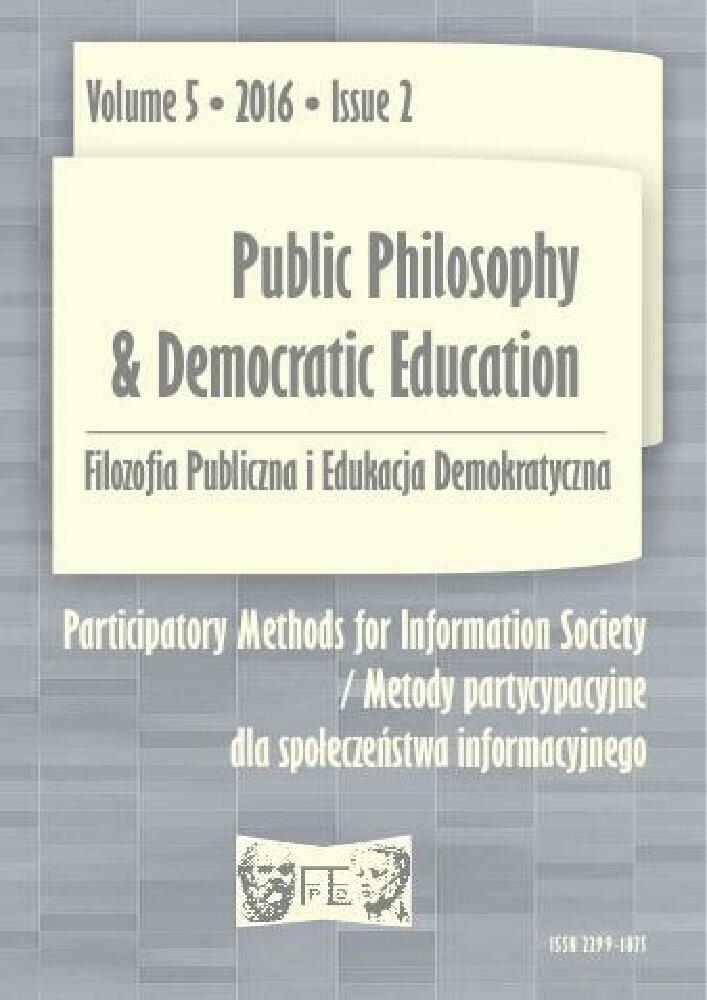Abstrakt
This paper examines the way of including society in decisionmaking processes within cities in the context of the ICT sector development and the usage of Geographical Information Systems (GIS). With universal access to information and increased possibilities of expression and gathering society’s opinion, it creates new forms of democracy that are conducive to participatory management especially in urban units. One of the tools used by the municipal government for the realization of the idea of participation is the Public Participatory GIS (PPGIS). In the first section of the text author focuses on the theoretical framework of social participation processes. Both on the processes of socio-economic transformation as well as on the legal conditions for participation in Poland. Afterwards, the author explains the idea of PPGIS and possibilities of its use in cities. Next section applies to a case study of Gdynia referring earlier theoretical considerations to specific urban practice. There has been described geosurveys technique that was carried out in the city. The text outlines the way of its implementation and its results in the context of the decision and policy-making processes in the big cities on the example of Gdynia. These considerations fit into the theme of creating the information society in the processes of city management, using participatory methods of Geographical Information Systems.
Bibliografia
Castells, M. (1996). The Rise of the Network Society: The Information Age: Economy, Society and Culture. Oxford: Blackwell Publishers.
Czepkiewicz, M. (2013). Geographic information systems in participatory management of nature in the city. Sustainable Development Applications, 4, 110-123.
Foster, S. (2015, October, 30). Cities, Inequality and the Common Good. Retrieved from Huffington Post: The World Post: http://www.huffingtonpost.com/sheila-foster/cities-inequality-and-the_b_8435316.html, accessed 15.12.2016.
IAP2 (2007). IAP2 Spectrum of Public Participation, Thornton, CO: International Association for Public Participation.
Kliksberg, B. (2001). Towards an Intelligent State. Amsterdam: IOS Press.
Koyama, K. (1968). Introduction to the Information Theory. Tokyo.
Mączyński, J. (1997). Globalne społeczeństwo informacyjne. Wybrane kwestie adaptacyjne. In: L. W. Zacher, Rewolucja informacyjna i społeczeństwo. Niektóre trendy, zjawiska i kontrowersje. Warszawa: Fundacja Edukacyjna “Transformacje”.
Pawłowska, K. (2010). Zanim wybuchnie konflikt. Idea i metody partycypacji społecznej w ochronie krajobrazu i kształtowaniu przestrzeni. Kraków: Fundacja Partnerstwo dla Środowiska.
Ramasubramanian, L. (2010). Geographic Information Science and Public Participation. London: Springer.
Reza, K. (1996). Networking and placemaking. Nordic Journal of Architecture Research, 9(4), 7-22.
Runge, A. (2012). Methodological problems associated with research on midsize towns in Poland. Prace Geograficzne, 129, 83-101.
Schuurman, N. (2004). GIS. A short introduction. London: Wiley-Blackwell.
Toffler, A. (1980). The Third Wave: The Classic Study of Tommorow. New York: Bantam Books.
Umesao, T. (1963). Information Industry Theory: Dawn of the Coming Era of the Ectodermal Industry. Tokyo: Asahi Hoso.
Licencja
Prawa autorskie (c) Autorzy zachowują prawa autorskie i prawa do publikacji swoich artykułów w tym czasopiśmie, przyznając czasopismu prawo do ich rozpowszechniania na warunkach CC BY-NC-ND 4.0
